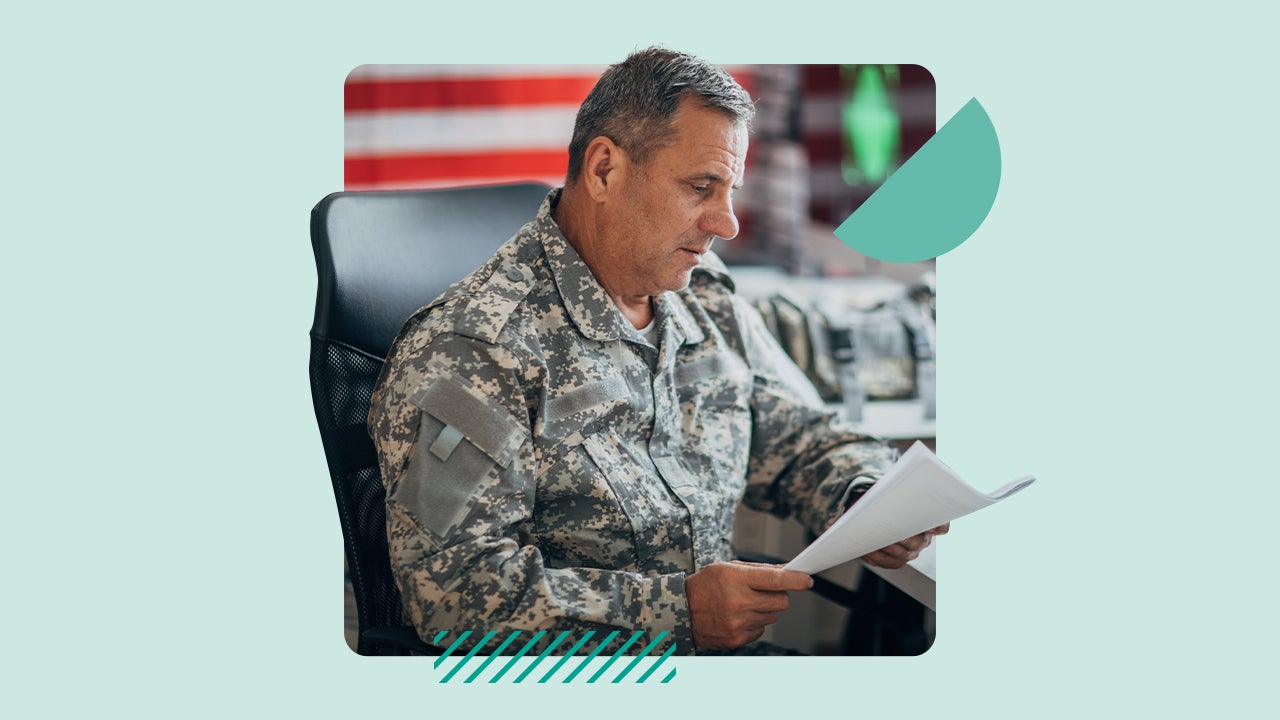Small business grants for felons

Key takeaways
- Formerly incarcerated entrepreneurs can apply for general small business grants for funding.
- Entrepreneur courses aimed at people formerly incarcerated offer a wealth of knowledge about starting a business.
- You may be eligible for an Education Pell Grant.
- Try local when looking for startup resources.
According to the Prison Policy Initiative, nearly 75 percent of people released from prison remain unemployed a year later. The stigma of a felony conviction can significantly hinder employment opportunities. For many felons, starting a small business may be the only path to financial independence and personal redemption, but getting funding can be difficult.
Fortunately, various organizations and government programs offer grants for convicted felons to start a business. These grants can provide free money for ex-felons and empower individuals to transform their lives and contribute positively to their communities.
Grants for entrepreneurs with criminal records
Many grants don’t exclude people formerly incarcerated from applying. Here’s a list of small business grants that may be open to entrepreneurs with a record:
1. Grants.gov
This government-run search engine helps small businesses find grants and other types of funding. Its directory houses over 1,800 grants — most aimed at providing funds for a specific use. Grants come from government departments, such as the Department of Agriculture.
You won’t find grants specifically for business owners with a criminal record, but many don’t exclude those with a criminal history.
To apply, you’ll need to register with SAM.gov and create a Grants.gov account using the same email address. Once you receive your unique entity identifier (UEI), which can take several weeks, complete full registration at SAM.gov and apply.
2. GrantWatch
GrantWatch is a database that allows entrepreneurs, including those formerly incarcerated, to search for funding opportunities. Over 9,500 grant opportunities are available in the database, and more than 1,350 organizations and businesses are accepting applications from businesses, individuals and nonprofits.
To access GrantWatch’s database, entrepreneurs must subscribe. Paid memberships are available for $18 per week to $199 per year, or you can sign up for a free membership, which provides limited information.
3. SBA 8(a) program
This program, run by the Small Business Administration, could make your business eligible to bid for government work contracts. Through the SBA 8(a) program, the government aims to use disadvantaged businesses for at least 5 percent of its contract work. It also provides mentorship and technical support, such as for complying with regulations.
The program lasts nine years, much longer than most entrepreneur programs. Getting this long-term support ensures sustainability for your business.
The SBA does require business owners to show “good character” to qualify. Approval may be subject to the type of criminal history and other factors. Your business will also need to be certified by the SBA.
4. Fresh Start Business Grant
This private grant offered by Bizee powered by Incfile offers $2,500 for aspiring business owners to use for startup costs. You must be at least 21 years old, and you’ll need to submit a business plan to show your projected growth.
Along with the grant, you’ll get access to Bizee’s Standard plan Incfile Gold, which offers tax consultations and services to incorporate your business.
Bizee Incfile also offers a $2,500 grant for young entrepreneurs in high school, trade school or a university to apply toward education expenses.
5. Local Initiatives Support Corporation Grants to Small Businesses
The Local Initiatives Support Corporation (LISC) offers various small business grants to support underserved entrepreneurs, particularly those from Black, Latin and other marginalized communities. These grants are designed to help small businesses access capital, foster economic growth and build resilience in their local communities.
LISC has helped over 26,000 small businesses pay vendor debts, upgrade technology, cover payroll expenses and provide emergency cash assistance. Grants usually include program support and technical assistance to help business owners move to the next stage in their business and plan for the future. Small business loans are also available. You can sign up for email alerts to be notified when the next grant is available.
6. Economic Development Directory
Economic development offices are available in almost all states and many cities. Their goal is to promote and support local businesses, including providing Economic Development Administration (EDA) Grants. You can use the Economic Development Directory to find a regional or state office near you to determine what type of assistance and grants are available.
7. National Association for Self-Employed Growth Grants
The National Association for Self-Employed (NASE) offers Growth Grants of up to $4,000 for small businesses. It focuses on businesses with the potential to grow if given the capital to invest in new equipment, employees or other opportunities. Unlike most grants, NASE awards a new winner each month.
8. Comcast RISE Investment Fund
The Comcast RISE Investment Fund is designed to promote small business growth while focusing on diversity, equity and inclusion. The fund was created originally to support businesses recovering from the COVID-19 pandemic.
The fund is currently available to businesses in the following locations:
- Boston, MA
- Grand Rapids, MI
- Nashville, TN
- Seattle, WA (King County)
- South Valley, UT (Wasatch Front)
A total of 500 winners will be awarded grants in each city.
This year, the grant awarded funds as well as:
- Consulting services
- Educational resources
- Creative production, media and technology services
9. State Trade Expansion Program (STEP)
The State Trade Expansion Program (STEP) is offered through the Small Business Administration to help businesses expand exports to international markets. The grant can help with costs related to expanding your business, such as upgrading e-commerce on your website, creating international marketing campaigns or going to trade shows.
You’ll need to keep detailed records of how you use the STEP funds and meet reporting requirements per STEP’s terms and conditions. For example, you’ll need to submit audited financial statements, quarterly reports and performance reports.
10. Amber Grant
The Amber Grant targets all women entrepreneurs rather than formerly incarcerated entrepreneurs exclusively. Created by WomensNet, a nonprofit organization, the Amber Grant provides multiple grant opportunities to businesses with at least 50% ownership by women, with a monthly grant of $10,000 and an annual grant of $25,000. The organization also awards a variety of monthly grants to nonprofits, startups and businesses operating in specific industries. categories.
11. Georgetown Pivot Program
Since 2018, the Georgetown Pivot Program has provided a comprehensive, one-year initiative aimed at equipping previously incarcerated individuals with the necessary skills for success in the business and professional arena. Participants have the chance to attend educational sessions and secure internships as well as participate in the Pivot Pitch Competition, where they’ll compete for startup funding.
There is an emphasis on starting and running a business, but those focused on securing employment also receive assistance with their search.
12. The Transform Business Grant
The Transform Business Grant supports entrepreneurs in marginalized communities with a $1,000 microgrant and a year-long business program. Transform, a nonprofit dedicated to making change by redistributing knowledge and resources, targets BIPOC individuals, those with disabilities, formerly incarcerated entrepreneurs and LGBTQ+ folks creating social impact.
13. LEAP Virtual Entrepreneurial Academy
Florida nonprofit LEAP is focused on aiding women who have previously been incarcerated in their reintegration process. The LEAP Virtual Entrepreneurial Academy, which is a three-month program that operates biannually, teaches essential business skills to its participants. This free program is funded by sponsors, and upon program completion, entrepreneurs present their business plans to a panel of experienced entrepreneurs for the chance to secure cash prizes and apply for a $1,000 microloan.
14. Rise Up, Get Started Grant Program
The Rise Up, Get Started Grant Program is an offering from Determination, Incorporated, a Kansas City-based nonprofit organization that specializes in aiding formerly incarcerated entrepreneurs in navigating business ownership. The Rise Up, Get Started initiative is a year-long program where participants receive coaching, mentoring and community support with various business-related tasks, including business plan creation. At the program’s end, participants will have $300 saved for their businesses as well as receive a $750 grant from Determination, Incorporation.
Resources for formerly incarcerated entrepreneurs
Grants for convicted felons to start a business aren’t the only available options. Opportunities for felons to jumpstart or expand a business venture are out there. If you can’t find grant money for released prisoners, here are some other ways to accomplish your funding and entrepreneurial goals:
CareerOneStop
CareerOneStop, which is sponsored by the U.S. Department of Labor,is a one-stop platform that provides tools, tips and resources to formerly incarcerated entrepreneurs reintegrating into the workforce. The website provides a comprehensive range of services to support their journey.
Users can access job search tips and resources to help them find and apply for employment opportunities. The website also features tips on how to locate state resources, find employers hiring formerly incarcerated individuals and how to talk about your convictions with future employers.
Felony Record Hub
As an online resource for formerly incarcerated entrepreneurs seeking to rebuild their lives, Felony Record Hub offers guidance tailored to the unique challenges faced by those with felony records. It provides information on legal rights, housing and programs, as well as the job market to help people formerly incarcerated find employment.
With a quick search, users can review a list of employers, which includes Amazon, 21st Century Fox and Aldi, who support formerly incarcerated entrepreneurs seeking employment to help build up their finances to start a business.
Entre Capital
Entre Capital is a unique resource dedicated to supporting second-chance entrepreneurs. As a Community Development Financial Institution (CDFI), its efforts are focused on providing financial assistance exclusively to those with criminal records. Its loans are tailored to help these individuals start or expand their businesses. Entre Capital also helps with business planning, budgeting and financial reporting guidance and offers mentorship programs.
Help for Felons
HelpForFelons.org is an online platform that offers diverse resources to support people formerly incarcerated. One of the key features of this website is its job listings section, where formerly incarcerated individuals can explore employment opportunities and re-enter the workforce. However, grants and business loans are listed on the site for those more interested in entrepreneurship.
The site also provides legal information as well as featured housing opportunities, helping users better understand their rights as they navigate the complexities of the legal system and find stable living arrangements post-incarceration.
Inmates to Entrepreneurs
Inmates to Entrepreneurs has a strong commitment to helping people formerly incarcerated rebuild their lives. This nonprofit organization provides a range of valuable resources and opportunities to support individuals on their journey, including free, online and in-person business education courses.
These courses cover a wide spectrum of essential business topics, including business planning, financial management, marketing and more. Participants in their programs also have access to mentorship, networking opportunities and guidance from experienced entrepreneurs who have successfully navigated similar challenges.
Defy Ventures
Defy Ventures is a non-profit organization committed to transforming the lives of formerly incarcerated individuals. Each of its programs is designed to guide entrepreneurs in training. Through a blend of entrepreneurship, personal development and mentorship, Defy Ventures equips its participants with the skills and mindset to become successful business owners and community leaders.
Small business loans for felons
Lenders may not specifically bar people who were formerly incarcerated or those with a criminal history from applying for a business loan. But lenders assess a business owner’s character and may do so using personal information. If the lender sees delinquent financial accounts or certain convictions like embezzlement, they could deny the application. You may find loan or financing options from:
|
Where to get business loans for felons |
Description |
Lenders |
|
SBA-approved lenders |
Business owners with a past criminal history may be eligible for an SBA loan. You’ll have to provide details about convictions on Form 912. The SBA will not approve those on probation, parole or currently incarcerated. |
|
|
Community Development Financial Institutions (CDFIs) |
CDFIs focus on supporting the community and serving disadvantaged businesses. |
|
|
Online lenders |
Online lenders tend to have lenient eligibility requirements and may not ask about personal history. Most lenders require at least six months in business or an annual revenue of $100,000. |
|
|
Peer-to-peer lenders and crowdfunding platforms |
Crowdfunding and peer-to-peer lending raise money through small investments or loans from people interested in investing in your business. |
|
Educational Pell Grants
The good news is that people with a criminal history can get a Federal Pell Grant. You’re eligible even if you’re currently incarcerated in a local facility, are on probation or parole or are living in a halfway house. You can use Pell Grants for undergraduate college education or accredited trade schools to receive federal funding. Talk to the school’s financial aid office to see if they accept Pell Grants.
A few exceptions that will make you ineligible:
- Currently in a federal or state facility
- Convicted of a forcible or nonforcible sexual offense and required to complete an involuntary civil commitment
Second Chance Pell Grant
The federal government founded the initial Second Chance Pell Grant in 2015 to help those incarcerated get funding for eligible prison education programs.
The Second Chance program is designed to inform those incarcerated about their educational opportunities and help them apply for federal funding. It also helps them continue the program if they’re transferred to a new facility or released. Plus, the program offers transitional services as individuals re-enter the workforce.
But Congress recently reinstated eligibility for the Educational Pell Grant to include some incarcerated individuals under the Free Application for Federal Student Aid (FAFSA) Simplification Act in 2020.
A revised Second Chance Pell Grant program will now operate under the Experimental Sites Initiative (ESI). Current Second Chance programs can continue serving students for three award years as they work toward meeting new regulations.
Entrepreneurship programs for felons
Several nonprofit organizations help people with past convictions re-enter the workforce and start their own businesses through programs like:
|
Program |
Length |
Details |
|
14 weeks for Entrepreneur Bootcamp |
|
|
|
Self-paced or 8-week courses |
|
|
|
46,000 hours of post-release education |
|
|
|
Not stated |
|
Additional resources for formerly incarcerated entrepreneurs
One of the best ways to get support as a new business owner is to connect with local resources and business owners going through the same journey.
- Small Business Development Centers (SBDC). Your local SBDC provides training, mentorship and funding opportunities for small businesses.
- SCORE. SCORE is a small business mentoring and resource program offered through the Small Business Administration. It offers free, one-on-one mentoring from a local business expert near you. It also offers training events, webinars and a Startup Roadmap course to help you get your business idea off the ground.
- Local grant or entrepreneur programs. Search for local grants, nonprofit organizations and programs designed to help small business owners succeed. State websites may provide a list of grants dedicated to specific purposes.
Bottom line
Nearly 70% of people are re-arrested within a few years of release, and poverty is one of the strongest predictors of re-incarceration, according to the Prison Policy Initiative. Gaining stable employment or starting a business is crucial in breaking that cycle. Grants for felons offer no-strings-attached funding to support this transition, with a range of local, state, and national programs available to help build a brighter, more independent future.
Frequently asked questions
Why we ask for feedback Your feedback helps us improve our content and services. It takes less than a minute to complete.
Your responses are anonymous and will only be used for improving our website.
You may also like


How to get a business loan with bad credit

Funding Black-owned businesses: Facts and statistics

17 small business grants and resources for veterans


